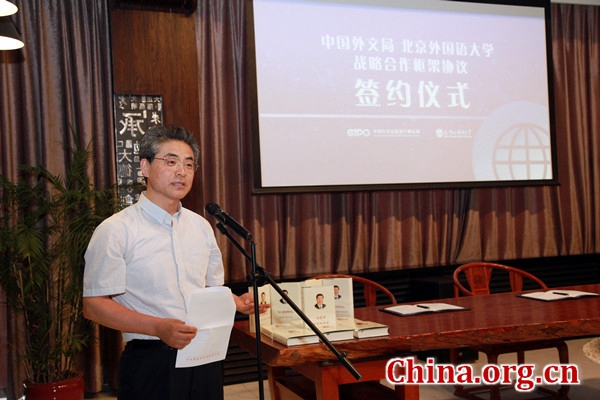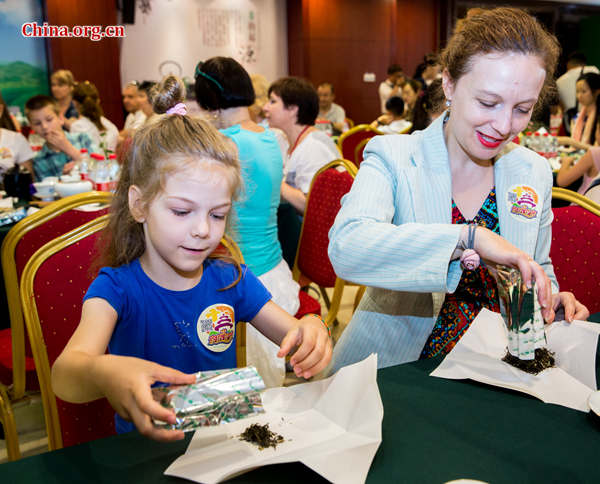CIPG, BFSU to boost cross-cultural communication
|
Zhang Fuhai, president of CIPG, addresses the signing ceremony for cooperation between CIPG and BFSU. [Photo by Zhao Na/China.org.cn] |
China International Publishing Group (CIPG) is seeking to extend its influence in the international cultural arena in partnership with Beijing Foreign Studies University (BFSU), one of China’s most prestigious linguistic schools.
The two sides, hoping to develop a close relationship designed to enhance China’s voice in the international community, signed an agreement in Beijing on July 16.
According to Zhang Fuhai, president of CIPG, the two organizations may have more to cooperate.
He said that CIPG is the oldest and largest professional cross-cultural communication institute in the country, while BFSU is an eminent school with a long history and rich language resources among domestic universities.
“Despite their different functions, the two organizations should make full use of their advantages to jointly assume responsibility to present China’s stories, voices and images and enhance China’s discourse power and influence in the international community,” Zhang said.
With courses covering 84 foreign languages, BFSU enjoys high prestige rarely surpassed by domestic universities in terms of size and diversity of linguistic education, particularly those of less-widely used languages, said Peng Long, president of BFSU.
Regarding cooperation with CIPG, Peng said, “It is an historic moment [in which] we are both inspired and encouraged.”
In addition to conventional language education, BFSU has explored multi-disciplinary majors, such as international journalism, business and law. Besides, it has set up 22 Confucius Institutes abroad.
CIPG Vice President Wang Gangyi said, “We are confident in pressing ahead with cooperative programs one after another through a pragmatic approach.” Wang is also one of the initiators of the cooperation.
The two sides are dedicated to building personnel pools of those with a good command of foreign languages as well as competent in journalism and new media technologies.
The exchange, focusing on faculty, students and CIPG staff in the form of internships, continued education and symposiums, such as research for handling diverse cultures under the Belt and Road Initiative, will complement the first-hand experience of translation via the China Academy of Translation.
read more


